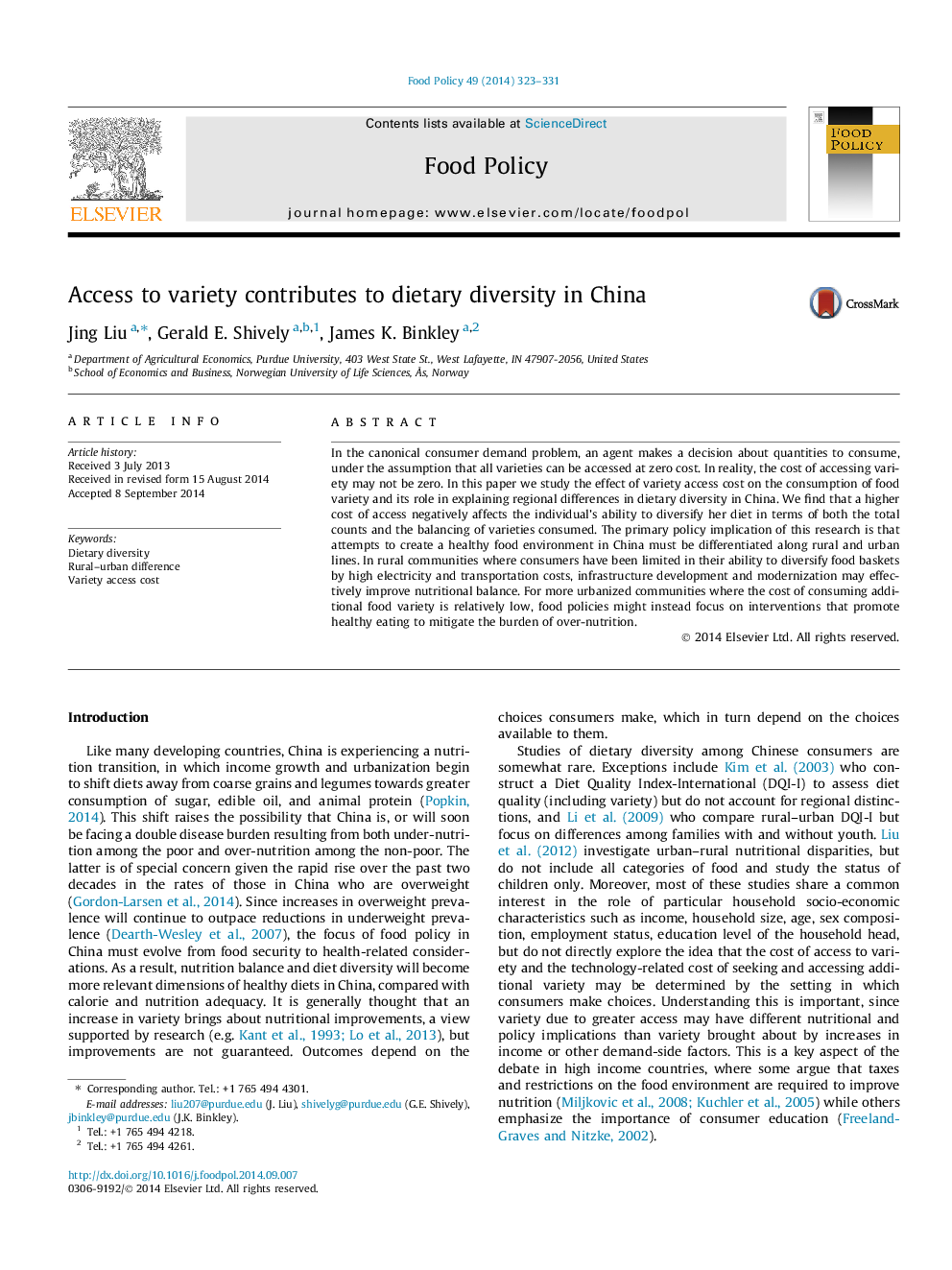| Article ID | Journal | Published Year | Pages | File Type |
|---|---|---|---|---|
| 5070465 | Food Policy | 2014 | 9 Pages |
Abstract
In the canonical consumer demand problem, an agent makes a decision about quantities to consume, under the assumption that all varieties can be accessed at zero cost. In reality, the cost of accessing variety may not be zero. In this paper we study the effect of variety access cost on the consumption of food variety and its role in explaining regional differences in dietary diversity in China. We find that a higher cost of access negatively affects the individual's ability to diversify her diet in terms of both the total counts and the balancing of varieties consumed. The primary policy implication of this research is that attempts to create a healthy food environment in China must be differentiated along rural and urban lines. In rural communities where consumers have been limited in their ability to diversify food baskets by high electricity and transportation costs, infrastructure development and modernization may effectively improve nutritional balance. For more urbanized communities where the cost of consuming additional food variety is relatively low, food policies might instead focus on interventions that promote healthy eating to mitigate the burden of over-nutrition.
Related Topics
Life Sciences
Agricultural and Biological Sciences
Food Science
Authors
Jing Liu, Gerald E. Shively, James K. Binkley,
